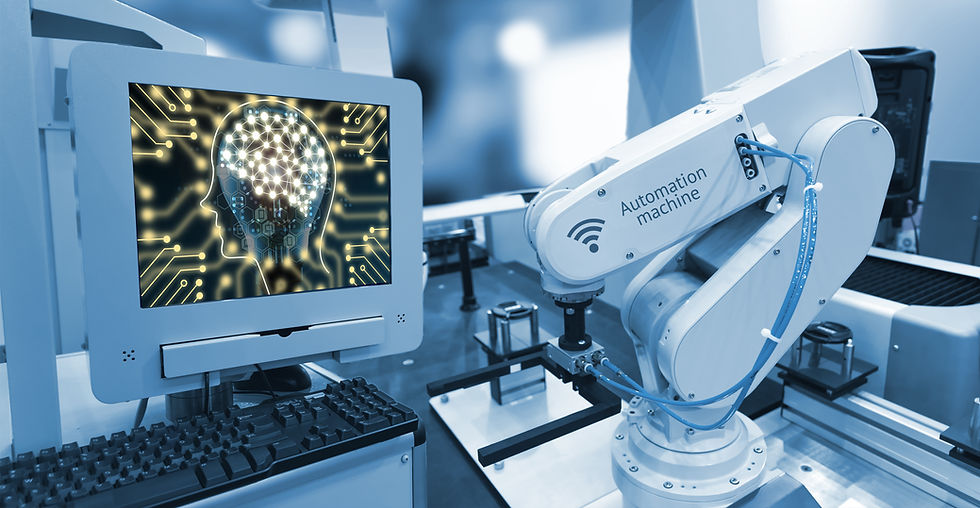

Definition of AI in healthcare
AI in Healthcare involves applying artificial intelligence technologies in the medical sector. This includes using machine learning algorithms to analyze and interpret diverse medical data such as images, patient records, and genomic information. By uncovering hidden patterns and trends, AI aids in diagnosing diseases and recommending treatments, providing insights that may not be immediately apparent to human healthcare providers.

Why is AI important in healthcare?
Artificial intelligence (AI) in healthcare acts as a crucial tool for the in-depth analysis of vast datasets, including individual patient profiles and raw medical data, allowing for the development of more accurate diagnostic strategies and treatment plans. With its ability to quickly process information from various sources, AI excels at identifying potential issues and providing solutions, addressing a wide range of scenarios in both clinical and administrative settings.
How does AI impact the healthcare industry?
Artificial intelligence propels advancements in the healthcare sector by utilizing high-performance computing (HPC) to analyze medical data. This data spans a wide range, including medical imaging, diagnostic procedures, and surgical processes. Importantly, this capability extends beyond geographical limitations, as cloud-based solutions can aggregate data from various networks and locations.


Benefits of AI in healthcare
The integration of AI in healthcare provides numerous benefits that enhance medical practice and improve patient outcomes. Here are some of the advantages it offers:


Enhanced Diagnostic Accuracy
AI analytics in healthcare enables quicker and more accurate analyses of medical data, minimizing the risk of human error. Its applications include tumor detection and disease prediction.
Streamlined Administrative Processes
AI automates administrative tasks, decreasing paperwork and streamlining scheduling, which leads to greater operational efficiency.


Faster Access to Patient Data
Improved Treatment Options
AI enhances operational efficiency by streamlining processes, such as surgical procedures, and improving decision-making for IT and medical administrators.
AI enhances care delivery by offering rapid access to patient records and optimizing clinical processes through natural language processing (NLP).

Global Connection
AI's processing capabilities have a global reach, offering insights for life-saving care and medical innovations, as demonstrated during the COVID-19 pandemic.

Strengthened Security and Safety
AI enhances healthcare security by preventing unauthorized access to patient data and using intelligent video analysis (IVA) to monitor facilities and ensure patient safety, including the recognition of objects, faces, and temperature.

Challenges of AI in Healthcare

Patient Privacy
Data Infrastructure
Algorithms
Protecting patient data privacy is a paramount concern.
Healthcare organizations need to implement robust data storage and organization systems.
Effective algorithms are essential for extracting meaningful insights from data.
Ethics
Establishing AI codes of ethics is crucial for the responsible management of data and AI usage.
Risk of Misuse
Inadequate infrastructure can result in the misuse or exposure of patient data to security threats.

Comparison before and after AI from different aspects
Before
Manual interpretation of data
Limited personalization
Slow and expensive
Historical data-based planning
Primarily in-person and phone calls
Paper-based records
Manual surgery
Paper-based records
Aspect
Diagnosis
Treatment Personalization
Drug Discovery
Resource Allocation
Patient-Provider Interaction
Health Records
Surgical Precision
Patient Monitoring
After
AI-assisted analysis of medical images and patient data
Tailored treatment plans based on individual data
Accelerated drug discovery through AI prediction
Data-driven predictive analytics for resource allocation
24/7 availability of AI-powered virtual assistants
Electronic health records(EHRs) and AI data management
AI-driven robotic surgery for enhanced precision
Electronic health records(EHRs) and AI data management


Statistics of AI in Healthcare
The global artificial intelligence in healthcare market, valued at USD 15.4 billion in 2022, is projected to grow at a compound annual growth rate (CAGR) of 37.5% from 2023 to 2030. Key drivers of this growth include the expanding datasets of patient health-related digital information, increasing demand for personalized medicine, and the rising need to reduce healthcare costs. Additionally, the growing global geriatric population, changing lifestyles, and the rising prevalence of chronic diseases have heightened the demand for early disease diagnosis and improved disease understanding. AI and machine learning (ML) algorithms are increasingly being integrated into healthcare systems to accurately predict diseases at early stages based on historical health data.




